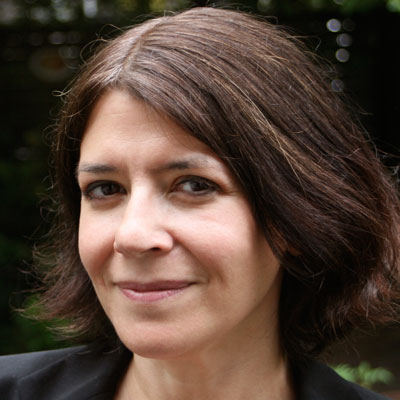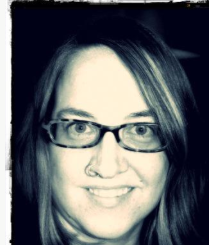SCROLL DOWN for much more about my guest and about this special episode.
If it is not already obvious, on Spark My Muse I feature people and topics I find interesting and important. I feature people from a variety of backgrounds and traditions: people of some kind of religious faith and people without belief in the supernatural are my guests. What they all have in common is that I think they are working on something worthy of attention and conversation. It doesn’t mean I agree or come to the same conclusions with every guest 100% but I appreciate them very much and I want to make space for them here and learn from them. It will spark my muse and yours.
Currently, few people meet that standard more than my guest today: Jennifer Michael Hecht. What I have deeply appreciated about Jennifer Michael Hecht‘s work is her curiosity, investigative way of working and writing, her sense of wonder, and her wonderful and sense of humor that comes out perhaps most often in her poetry.
In our conversation we cover topics in some of her books, her background, and she even reads a poem (swoon), but the main topic covered is extremely important.
In fact, it’s a matter of life and death: Suicide. There are common myths about why people kill themselves and those myths create more deaths. No more.
If you feel the urge to end your life, don’t. Wait out your mood, please talk about what is bothering you, and seek help. Stay alive.

I too have had time of deep darkness and thoughts of taking my life have gone through my mind. I haven’t planned how to carry it all out because the finality scares me and the thought of putting my loved ones through hardship hurts me.
The statistics tell us that having these thoughts are normal, just as any other type of thoughts. Our thoughts our not our identity. They are things our brain does to try to solve problems. Sometimes our brain should not be listened to. We must not listen to any murderous thoughts either, right? (Like the ones we have during road rage moments or when we feel like we want to strangle our child when they sass us or boldface lie.) Our meat-like brains might think bad things. So, if a thought of taking your life is happening now, or ever. Please stay. Don’t be rash. Hang on. AND Thank you for making a choice to stay on.
The best thing we can do during those dark and bad times is to wait it out and support others doing the same. We can also talk to someone to sort things through. If you feel like you are in a desperate mood, try your best to stay until you feel better. Jennifer says it and I concur, your future self will be happy you did. Others WILL be happy you did.
Don’t do anything you can’t undo. First Call 1-800-273-TALK (8255)
To share an audio snippet, click on the red and white icon below.
Podcast: Play in new window | Download (Duration: 1:07:19 — 92.4MB) | Embed
Subscribe to Spark My Muse Apple Podcasts | Spotify | Email | TuneIn | RSS | Subscribe to Spark My Muse
Thank you for listening. This is a very important episode and I urge you to pass it along to as many people as you can for when a very desperate mood may strike them.
Scroll down for notes of the show listed by-the-minute. More resources are at the bottom.
GUEST: Jennifer Michael Hecht
BIO
Jennifer Michael Hecht is a poet, philosopher, historian and commentator. She is the author of the bestseller Doubt: A History, a history of religious and philosophical doubt all over the world, throughout history. Her new book is Stay: A History of Suicide and the Philosophies Against It, out from Yale University Press. Her The Happiness Myth brings a historical eye to modern wisdom about how to lead a good life. Hecht’s The End of the Soul: Scientific Modernity, Atheism, and Anthropology won Phi Beta Kappa’s 2004 Ralph Waldo Emerson Award “For scholarly studies that contribute significantly to interpretations of the intellectual and cultural condition of humanity.”
Publisher’s Weekly called her poetry book, Funny, “One of the most original and entertaining books of the year.” Her first book of poetry, The Next Ancient World, won three national awards, including the Poetry Society of America’s First Book award for 2001. Her new poetry book called Who Said, just came out from Copper Canyon in November 2013. Hecht has written for Politico, The New York Times, The Washington Post, The Boston Globe, The Philadelphia Inquirer and The New Yorker. She holds a Ph.D. in the history of science/European cultural history from Columbia University (1995) and has taught in the MFA program at Columbia University and the New School in New York City.
SHOWNOTES
MIN 2:00
Her first love: poetry.
min 3:30
PhD at Columbia in the History of Science
Emily Dickinson
John Keats
W.B. Yates
5:00
The hard sciences in her roots influencing her educational pursuits.
6:30
How she came to write the book Doubt: A History
The End of the Soul (her dissertation)
The Society of Mutual Autopsy
Brain dissections (Paris) done to prove the soul did not exist.
The members of this group left records of their atheism and she decided that there was not a good record of atheism and the tradition of it.
15:00
Disbelief is “a kind of atheism”. The splits and religions that come about as people question the prominent god or gods and religion of the time.
16:30
The people throughout history who reject the supernatural and accept only the natural world.
17:30
The mixing of cultural and religions in our times and the current idea of spirituality that you can contact the supernatural inside yourself.
19:00
The secular argument against suicide.
Ages 15-44 3rd leading killer of Americans
Ages 44 and up is the 10th leading killer. It happens in greater number among the older population.
In 2000, 30,00 people per year.
In 2010, 40,00 people per year killed themselves and raising.
There seem to be trends like in other social trends like drug use, and the trend rises when people feel it’s a solution others like them are choosing.
23:00
The Christians who leave suicide notes and say that they think that God will understand (and forgive them.) need to hear the reason why to stay.
The TWO MAIN ARGUMENTS in the book STAY:
Suicide harms community
People close to you, that you may never wish to harm to be harm irreparably (especially children who are 4 times more likely to also commit suicide if their parent does, depending on how old they are).
Neighborhoods, schools, families, groups, communities have increased suicide and trauma statistically after a suicide occurs.
Suicide hurts your future self
28:00
People don’t realize how common it is to have a sudden (fleeting) thought that it might be better if they weren’t lying any longer when things are going badly. It’s a mood. Some people act in the worst way about a bad mood.
95% of people who try suicide, if they live, will never try it again.
29:30
Having faith in your future self.
30:30
This is a worldwide problem. 1 million per year. Up 60% worldwide.
32:00
Suicide is more impulsive and is more impulsive than we’ve realized.
Shame has something to do with suicide. People had suffered a humiliation in romanic, at work, or in some other way.
34:30
Knowing ahead of time to be on guard against the perils of impetuous thinking about suicide.
“Don’t let your worst mood murder all your others. The other moods don’t want to do that.”
“Depression happens to you. Not suicide. Suicide is a behavior.”
36:30
Pain can be a helpful teacher. We are stuck with it and it seems to help us grow.
39:00
On Robin Williams’ suicide.
41:00
The executive function and planning portion of the adolescence brain is not finished until age 25. There are many reasons to wait and see that things get better as your future self.
45:00
Looking for the warning signs in ourselves and stay for ourselves and others. You don’t get to choose who suffers.
50:00
The Wonder Paradox (her new book she’s working on)
About poetry and wonder
The people who do not affiliate with any religion. What rituals do and what people use for marriages or funerals, etc. What Poetry can provide for that.
“American religions have offered meaning and an afterlife, yet millions of Confucians and 5,000 years of Egyptians didn’t believe in an afterlife.”
55:00
“Meaning always came from culture and community.”
56:00
Keats’ tuberculosis poem
57:00
On the universe and vastness of creation and our consciousness.
59:00
“We are the universe seeing itself and marveling.”
1:01
On the darkness and struggle.
1:05
Jennifer reads her poem:
History
Even Eve, the only soul in all of time
to never have to wait for love,
must have leaned some sleepless nights
alone against the garden wall
and wailed, cold, stupefied, and wild
and wished to trade-in all of Eden
to have but been a child.
In fact, I gather that is why she leapt and fell from grace,
that she might have a story of herself to tell
in some other place.
Plus another poem
As promised, I’m including another of Jennifer’s poems in the shownotes. Below you can click to heard it read aloud and that enhances the experience.
Funny Strange
We are tender and our lives are sweet
and they are already over and we are
visiting them in some kind of endless
reprieve from oblivion, we are walking
around in them and after we shatter
with love for everything we settle in.
Thou tiger on television chowing,
thou very fact of dreams, thou majestical
roof fretted with golden fire. Thou wisdom
of the inner parts. Thou tintinnabulation.
Is it not sweet to hand over the ocean’s
harvest in a single wave of fish? To bounce
a vineyard of grapes from one’s apron
and into the mouth of the crowd? To scoop up
bread and offer up one’s armful to the throng?
Let us live as if we were still among
the living, let our days be patterned after
theirs. Is it not marvelous to be forgetful?
Click to hear this poem read aloud–it’s marvelous that way. It was downloaded from the Poetry Foundation. Visit it and read some of her other poems here and visit her page at the Poetry Foundation HERE.
• If you enjoyed this, you will like maybe to hear my personal story in audio I created about six months later:
• In October 2016, I had Ryan J. Bell as a guest, who is a mutual friend. You will also enjoy our conversation that includes a very interesting JMH “girl crush” tangent. Enjoy!
Hear recent episodes of the podcast.
Thank you for reading the shownotes and listening to Spark My Muse.
• After sticking with it this far, you would probably like the newsletter. You have pluck.
You’re just a few click away from getting some Update Newsletter goodness sent to you 2-3 times per month with announcements, links, and extras.
If you feel drawn to give to this show to help out…
You can Sponsor the show by clicking here to contact me.
or send me a one time gift here.
Thank you.
please subscribe for the next episode!






![I am a Hypocrite: My Spiritual Guidance for Bloggers [Thom Turner]](https://lisadelay.com/blog/wp-content/uploads/2012/02/trafficlighttree.jpg)